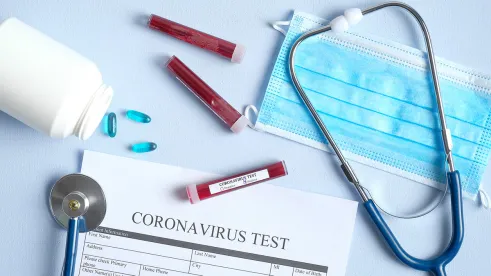On July 6, 2022, the Equal Employment Opportunity Commission (EEOC) announced it has entered into a conciliation agreement with a Florida-based medical practice for violations of the Genetic Information Non-Discrimination Act (GINA) arising out of the practice’s collection of employees’ family members’ COVID-19 testing results.
In a press release announcing the agreement, the EEOC stated that, following an investigation, it found that the medical practice – Brandon Dermatology – violated GINA by requesting the test results of employees’ family members and that “[s]uch conduct violates the GINA, which prohibits employers from requesting, requiring or purchasing genetic information about applicants or employees and their family members, except in very narrow circumstances which do not apply in this matter.” GINA defines “genetic information” to include “the manifestation of a disease or disorder in an employee’s family members.”
While the press release includes limited details on the matter, the EEOC noted that “[i]n addition to compensating affected employees through restoration of leave time or back pay, as well as compensatory damages, the conciliation agreement resolving the charge requires Brandon Dermatology to review its COVID-19 policies; conduct training on EEO laws as they pertain to COVID-19; and post a notice.”
In its technical assistance guidance relating to COVID-19, the EEOC states that GINA “prohibits employers from asking employees medical questions about family members” including asking an employee who is physically coming into the workplace whether they have family members who have COVID-19 or symptoms associated with COVID-19. However, the guidance goes on to state that “GINA . . . does not prohibit an employer from asking employees whether they have had contact with anyone diagnosed with COVID-19 or who may have symptoms associated with the disease.” It also notes that “from a public health perspective, only asking about an employee’s contact with family members would unnecessarily limit the information obtained about an employee’s potential exposure to COVID-19.”




 />i
/>i
